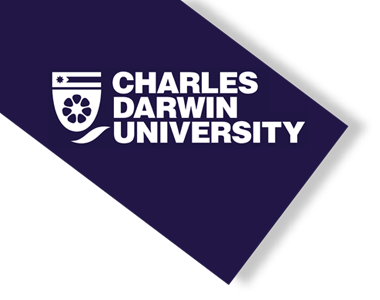Bachelor of Education (Primary Teaching)
Charles Darwin University
About
*** This course has been replaced by the Bachelor of Education Primary WEDP01 from 2018 and applicants should refer to this newly accredited course when applying.
Students enrolled in the BEDP will be able to continue to re-enrol however consideration should always be given to transferring to the latest course version.
*** This course prepares students to be teachers in primary schools (transition to year 7).
It meets both national and local need for teachers of exemplary practice committed to enhancing educational outcomes for all children and young adults.
It emphasises improving the teaching-learning relationship in the classroom, raising awareness of issues surrounding Indigenous education and developing an informed, evidence-based approach to learning and teaching in primary settings.
The course comprises discipline-specific curriculum and pedagogical studies, general education studies and professional experience.
The course is both theoretical and practical, providing a sound knowledge base in the core content areas of the school curriculum, knowledge of contemporary approaches to issues in education such as inclusivity, child and adolescent development, and promoting positive behaviour, and extensive experience in school settings.
Indigenous perspectives are a particular focus, with all students expected to examine specific strategies for enhancing educational outcomes for Indigenous children.
Students with relevant VET qualifications receive credit towards the course appropriate to their level of qualification.
Further information is available on the CDU website.
This course is available in fast-track mode.
Students can commence in Semester 1, Semester 2 or the Summer Semester.
Further information about this option is available on the CDU website.
The course employs a range of flexible, multi-modal study options such as on-campus workshops, lecture recordings, online classroom sessions, and external studies.
Some units have negotiated delivery involving tutorial assistance and teaching at the Desert Peoples Centre in Alice Springs and Batchelor.
Students are encouraged to review the employer eligibility requirements as they can vary state to state.
Structure
Common(2 units) - 20
Units totalling 20 credit points:
CUC107
CUC100
(new title from 2016)
Select Common Units to find out more about individual units and advanced standing options.
Compulsory Core(27 units) - 290
Compulsory Core Units totalling 290 credit points as detailed below.
ECU100
ECU101
(new title 2020)
ECU102
ECU103
ELA100
EMA100
EPR100
ESC100
(replaced by ESC200 2018)
ECU204
(new title 2015)
ELA200
ELA201
EMA200
EPR200
(replaced by EPR211 from 2019)
EST200
(recoded to EST304 2018)
(recoded to EST305 Socially Inclusive Pedagogy 2020)
EST203
ECU300
ECU301
(new title 2018)
ELA300
EMA300
(30cp) (replaced by EPR301 Professional Experience 4: Classroom Ready from 2018) (30cp)
ESC300
EST300
(recoded to EST303 Special Needs in the Classroom 2018)
EST302
Specialist Electives(1 unit) - 10
One unit totalling 10 credit points selected from the following units offered by the University. CAS110 Introduction to Yolngu Languages and Culture (replaced by IAS161 Language Studies 1 from 2020) EPR202 Education in Alternative Settings (no longer available from 2019) EST202 Aboriginal and Torres Strait Islander Languages and Literacies EST204 ICT in Education
Units offered externally by other Higher Education Providers may be included subject to the written approval from the Course Coordinator. For example:
EDRE101 Religious Education 1 from Australian Catholic University (ACU)
Electives(0 units) - 0
There are no Elective Units for this course.
- 320
Total Credit Points
Entry requirements
Admission requirements are met by one of the following: Successful completion of the Northern Territory Certificate of Education and Training (or equivalent) and the awarding of an Australian Tertiary Admissions Rank (ATAR) of at least 60*. Successful completion of a national qualification at Certificate IV level or higher. Successful completion of at least 0.5 year of full-time study (or equivalent) of a higher education degree/diploma. Overseas secondary or tertiary qualifications considered equivalent to the above Australian qualifications. Attainment of a STAT Multiple Choice score of 135 (or a score of 145 if prior to May 2010). Successful completion of the Tertiary Enabling Program, the Preparation for Tertiary Success courses, or other recognised tertiary preparation course. Submission of an acceptable personal competencies statement and/or employment experience. * After any applicable adjustment factors have been applied.
Institution
